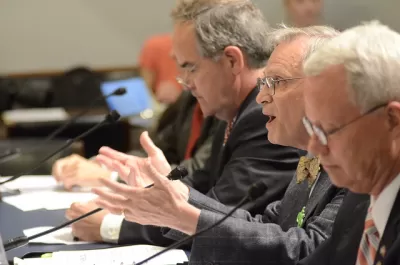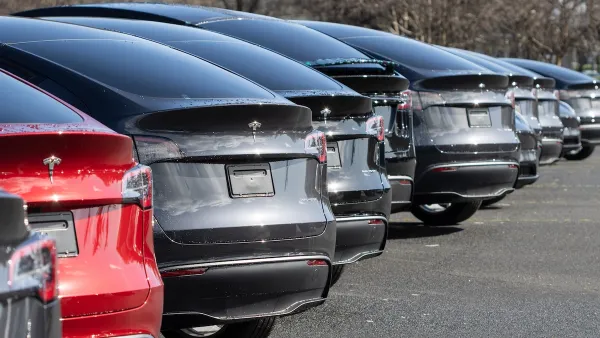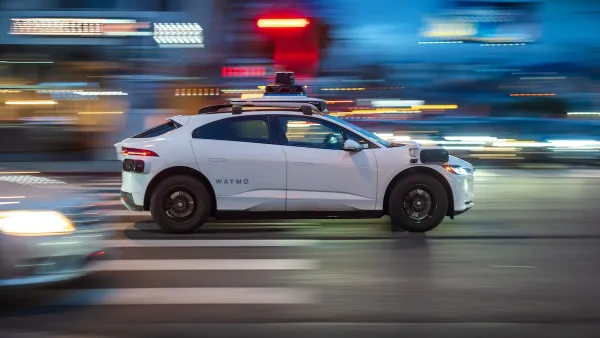Rep. Earl Blumenauer (D-Ore.), a famous advocate for alternative transportation, has thrown his support behind the epoch-changing potential of self-driving cars.

Rep. Earl Blumenauer writes an argument of positive support for Wired, beginning with an unequivocal statement of immense scope:
The powerful disruptive force of car sharing services like Uber and Lyft will rapidly be joined by autonomous vehicle technology. A huge part of our economy and culture—the American way of life designed around the automobile for the last century—will change.
Underlying Rep. Blumenauer's argument is the assumption that Congress is currently held hostage by the automobile. That could all change, however, and quickly. As Rep. Blumenauer writes: "I’ve never seen a combination of technological changes converge with this level of speed and intensity before."
The editorial, however, functions less as a paean and more as an appeal—to move quickly to take advantage of the coming wave of innovation and overthrow the captive power of the soon-to-be obsolete infrastructure and politics of the automobile. The article even includes a playbook, of sorts, which starts with an example taken from Rep. Blumenauer's home state of Oregon, which has pioneered the use of vehicle miles traveled (VMT) to charge for the use of roads and highways, rather than relying on the broken mechanism of the gas tax, with its OReGO pilot program. "Integration of this miles traveled charge into market-ready and emerging vehicle technology can provide data to drive transportation planning decisions," writes Rep. Blumenauer.
FULL STORY: Let’s Use Self-Driving Cars to Fix America’s Busted Infrastructure

Maui's Vacation Rental Debate Turns Ugly
Verbal attacks, misinformation campaigns and fistfights plague a high-stakes debate to convert thousands of vacation rentals into long-term housing.

Planetizen Federal Action Tracker
A weekly monitor of how Trump’s orders and actions are impacting planners and planning in America.

San Francisco Suspends Traffic Calming Amidst Record Deaths
Citing “a challenging fiscal landscape,” the city will cease the program on the heels of 42 traffic deaths, including 24 pedestrians.

Adaptive Reuse Will Create Housing in a Suburban Texas Strip Mall
A developer is reimagining a strip mall property as a mixed-use complex with housing and retail.

Study: Anti-Homelessness Laws Don’t Work
Research shows that punitive measures that criminalized unhoused people don’t help reduce homelessness.

In U.S., Urban Gondolas Face Uphill Battle
Cities in Latin America and Europe have embraced aerial transitways — AKA gondolas — as sustainable, convenient urban transport, especially in tricky geographies. American cities have yet to catch up.
Urban Design for Planners 1: Software Tools
This six-course series explores essential urban design concepts using open source software and equips planners with the tools they need to participate fully in the urban design process.
Planning for Universal Design
Learn the tools for implementing Universal Design in planning regulations.
Heyer Gruel & Associates PA
JM Goldson LLC
Custer County Colorado
City of Camden Redevelopment Agency
City of Astoria
Transportation Research & Education Center (TREC) at Portland State University
Jefferson Parish Government
Camden Redevelopment Agency
City of Claremont





























